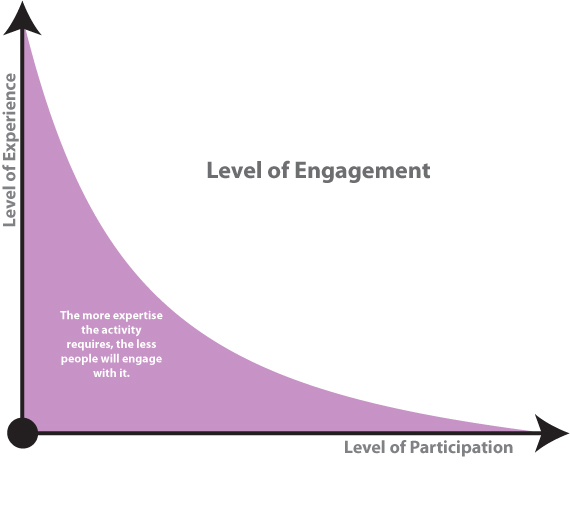Recently, there has been an explosion of public discourse (fueled by the media) on whether we should do away with tenure in our institutions of higher learning. The basic argument boils down to “tenured teachers can do as they please due to job security and education suffers as the result.” Tenured professors, we are told, focus on research and publishing incomprehensible articles aimed at a few individuals in the world who could even understand them. What’s the use in that, people ask? My son/daughter/neighbor’s kid are being taught by a TA (with poor language skills) while we pay thousands of dollars for the privilege of these children attending universities with all those lazy good-for-nothing tenured professors!
You might say that my summary of this world-view is extreme and simplifies the ideas to their comic representation. But that’s the point: the articles (and the readers’ comments they inspire) are written to get an emotional response. The issues of tenure, of the research that these tenured professors are engaged in and the articles they publish, and of teaching styles are complex. To evaluate the contribution of a scientist to his field, one needs to have a certain amount of expertise in that subject matter. Just feeling one’s way through a legal argument or an economic strategy or a quantum-mechanical equation won’t result in a meaningful idea. While our guts (go amygdala!) can help us make a character judgment, they are notoriously poor at fact checking.
Consider the diagram below.
This diagram plots the level of background knowledge on the y-axis versus the accessibility on the x-axis. The level of expertise required to carry out discourse in quantum mechanics is so high that only a few can have meaningful conversations. The level of knowledge required to talk about Britney Spears is low enough that anyone can join the discussion. Thus the level of expertise sets the entry bar level: the lower it is, the higher the participation.
The problems arise when people think they know enough to have an informed opinion and to make value judgments and decisions based on this misconception. For all of the media talk about the US economic policy, only a very small subset of the voices heard know enough to make a real contribution to public understanding of the problems we face today. Gut feelings on the subject tend to lead erroneous conclusions.
The discussion about tenure similarly lacks any real understanding of what some of these thinkers contribute to our scientific progress. To come up with a value judgment of these contributions, a person needs to be very well informed about the field—the bar of the level of expertise axis is set very high.
Product Design Strategy
At this point, I would like to bring the discussion back to product design. What does this all mean to design? Some products cater to a very narrow audience by setting the level of expertise variable high. Products like law and medical journals, trade publications for programmers and movie-makers, international policy and economics forums, and equally demanding publications require a lot of time and energy from their contributors and readers in addition to deep background knowledge of the respective subject areas. So as product designers, we need to make participation easy and inviting, we need to support the users in making these products valuable to their small community of peers.
But that’s not all. To make these products valuable we need to explain them to as wide an audience as possible—we need to get low on the y-axis and increase the level of interest among a large segment of the population. Otherwise, we get a lot of articles pointing to useless contributions of tenured professors.
This is called marketing! Marketing and PR are all about low entry and high participation. Now we just need to make sure that the people who are developing ad campaigns understand the actual product they are selling…
—————–
New York Times published and essay by Christopher Shea on September 3rd, 2010: “The End of Tenure?” Here is a link to that article: http://www.nytimes.com/2010/09/05/books/review/Shea-t.html?_r=1&scp=1&sq=tenure&st=cse

